Indigenous Governance Database
Gila River Indian Community
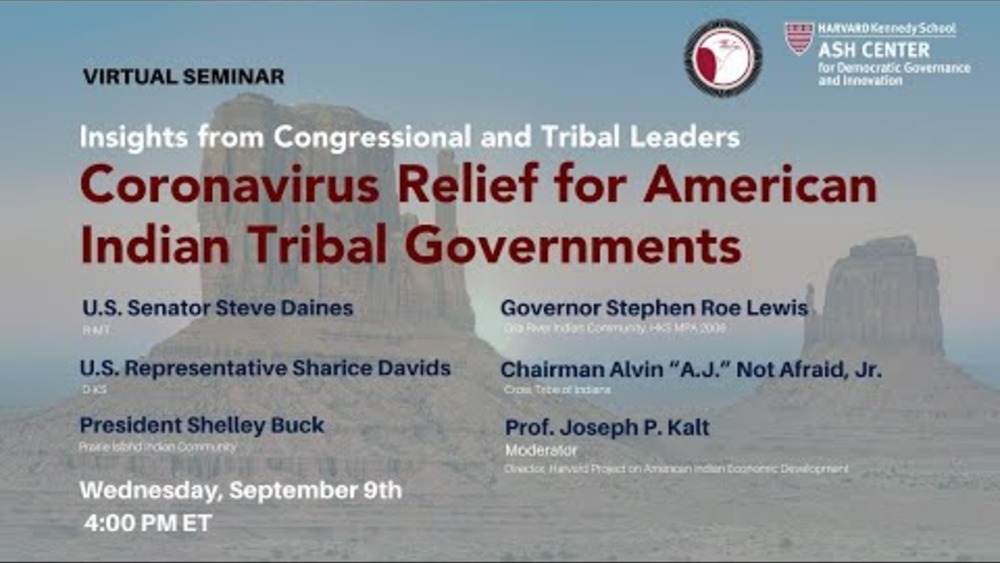
Insights from Congressional and Tribal Leaders: Coronavirus Relief for American Indian Tribal Govt
In March 2020, American Indian tribes celebrated their historic inclusion in the CARES Act, receiving nearly $11 billion in direct relief. The Act recognized that tribal governments are confronting extraordinary demands parallel to those faced by state and local governments. The relief dollars,…
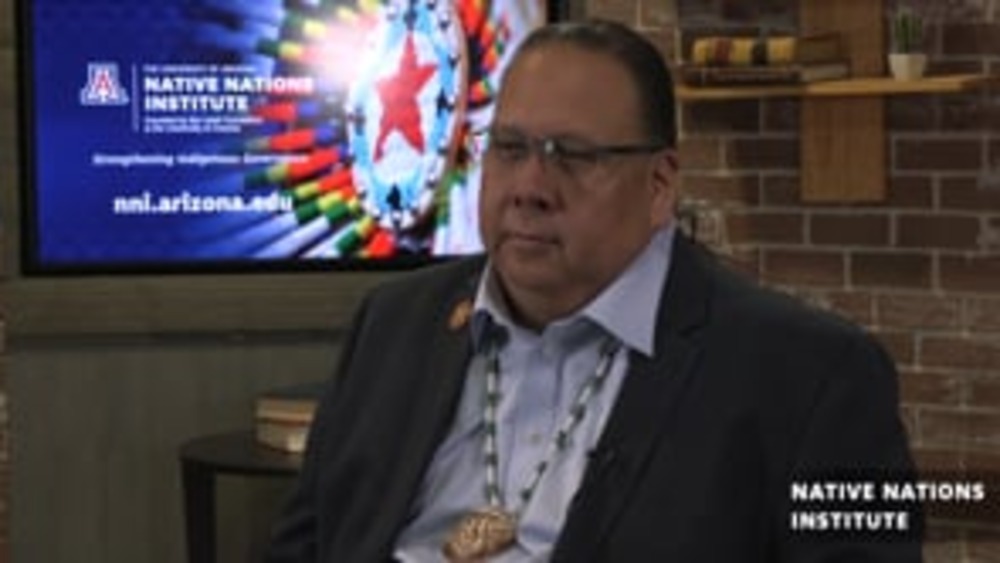
Stephen Roe Lewis: Effective Tribal Leadership for Change
Stephen Roe Lewis has been serving two terms as the Governor of the Gila River Indian Community. He follows a strong tradition and family legacy of leadership for the Akimel O’otham and Pee-Posh people in this desert riparian region of Arizona. Governor Lewis has worked on numerous political…
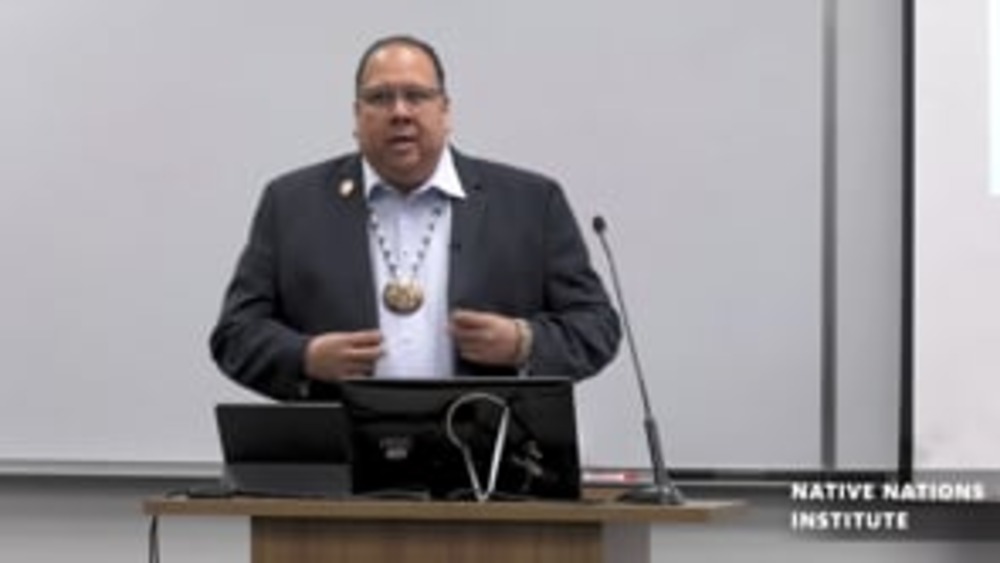
Governor Stephen Roe Lewis Distinguished Tribal Leader Lecture
Governor Stephen Roe Lewis of the Gila River Indian Community visited the University of Arizona to speak at January in Tucson: Distinguished Tribal Leader Lecture sponsored by the Native Nations Institute and held at the Indigenous Peoples Law & Policy program at James E. Rogers College of Law…
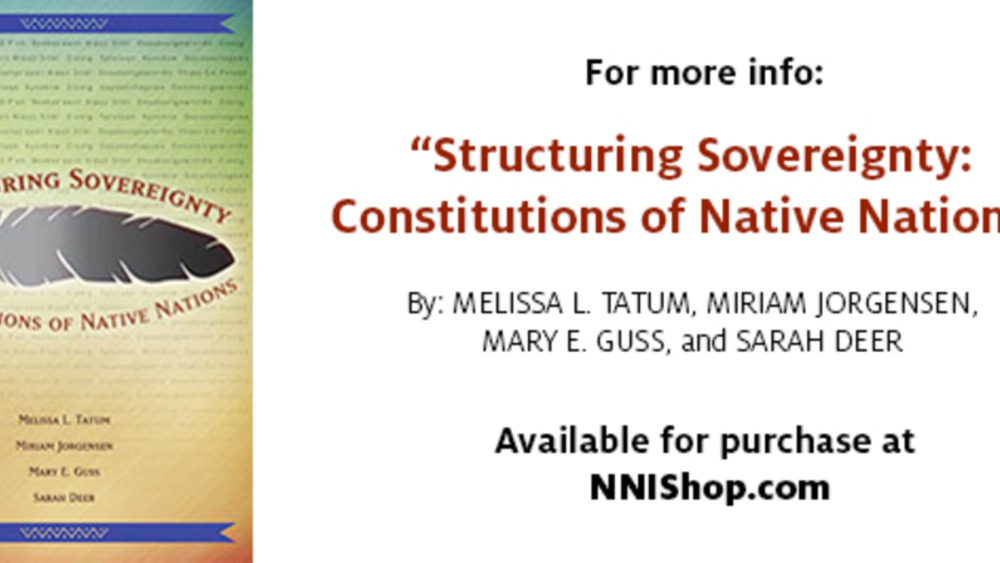
Gila River Indian Community Constitution
Location: approximately 34 miles south of the Sky Harbor Airport in Phoenix, Arizona. Population: 11,257 Date of Constitution: 1960
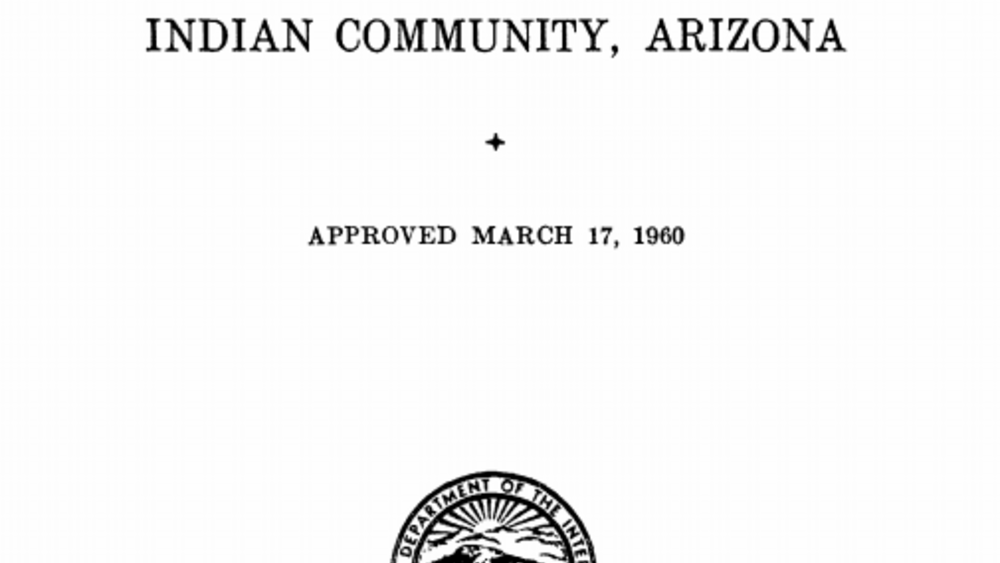
Gila River Indian Community: Legislative Functions Excerpt
ARTICLE VI–QUALIFICATIONS OF OFFICERS Section 1. No person shall be elected or hold office as Governor, Lieutenant Governor, Chief Judge, Associate Judges, or Councilmen unless he (1) is a member of the Community; (2) has reached the age of twenty-five (25) years; (3) has been living in the…
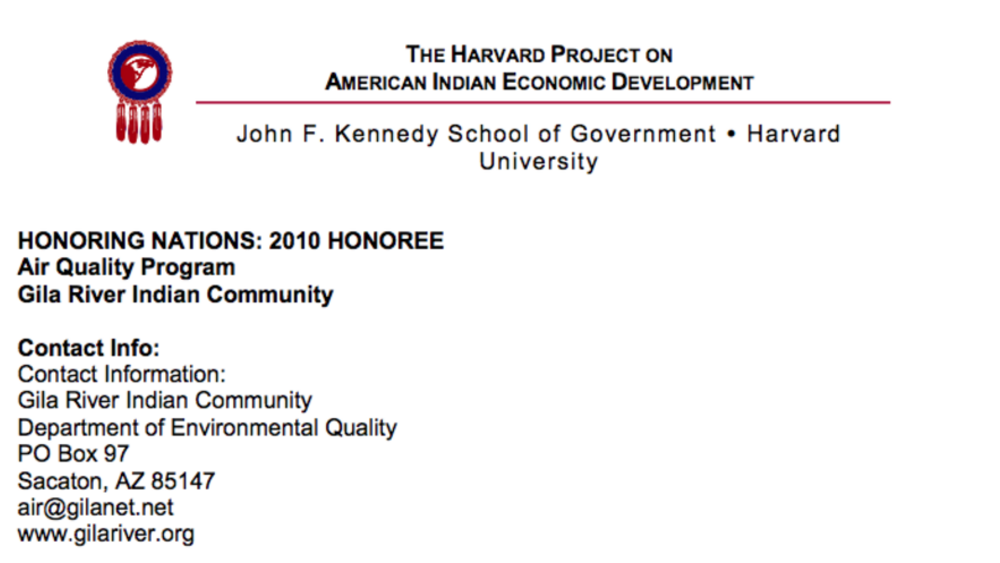
Gila River Indian Community Air Quality Program
In recent years, tribal governments in the United States have passed sophisticated laws and regulations to manage social and economic development in their communities. Although air quality is an important aspect of both economic growth and human health, very few Native nations have successfully…
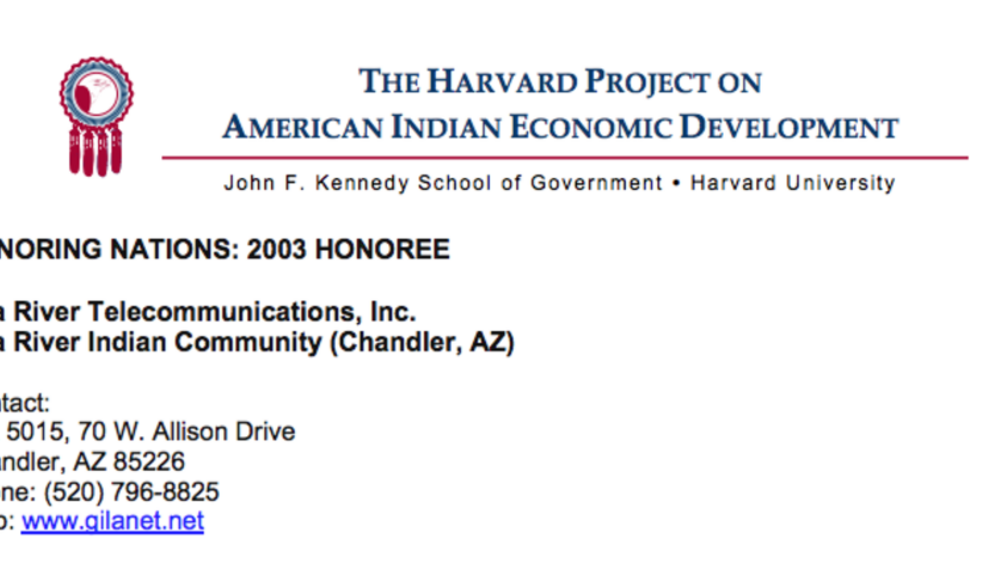
Gila River Telecommunications, Inc.
Recognizing the need for affordable and reliable telecommunications services, the Tribe founded Gila River Telecommunications, Inc. (GRTI) in 1988. A pioneer in telecommunications in Indian Country, GRTI offers affordable landline phone service, dial-up and DSL Internet service, and satellite…
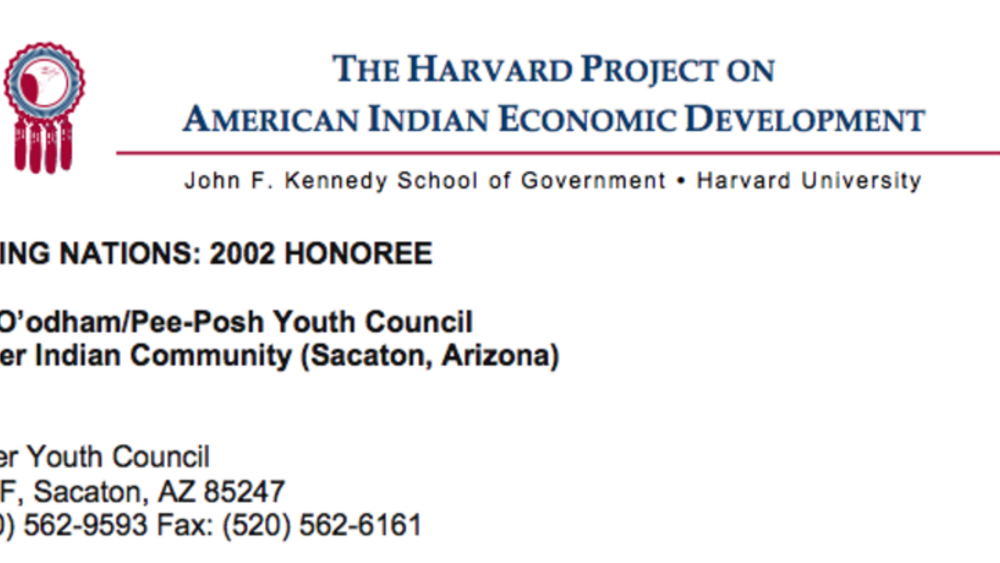
Akimel O'odham/Pee-Posh Youth Council
Recognizing that their youth possess critical insight on a full range of governing issues, tribal leaders chartered the Akimel O’odham/Pee-Posh Youth Council in 1988 to give youth a formal voice within the tribal government. The Council is comprised of 20 youth between the ages of 14-21, who are…
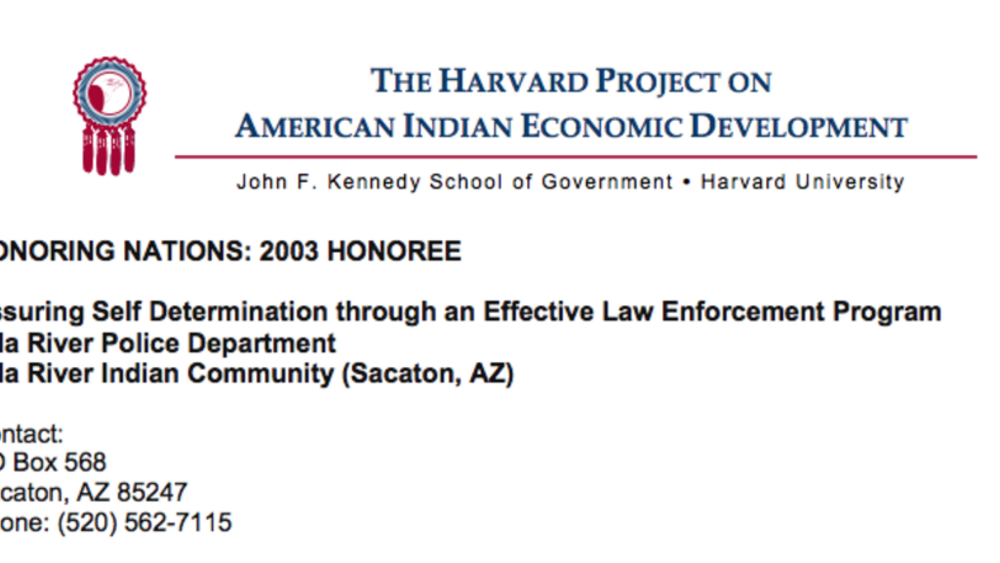
Gila River Law Enforcement Program
Serving a population of 17,000, the 92-employee Gila River Police Department operates a multifaceted law enforcement program that includes community-based policing, neighborhood block watch programs, a citizen’s police academy, and bike patrols. Since assuming control over law enforcement in 1998,…
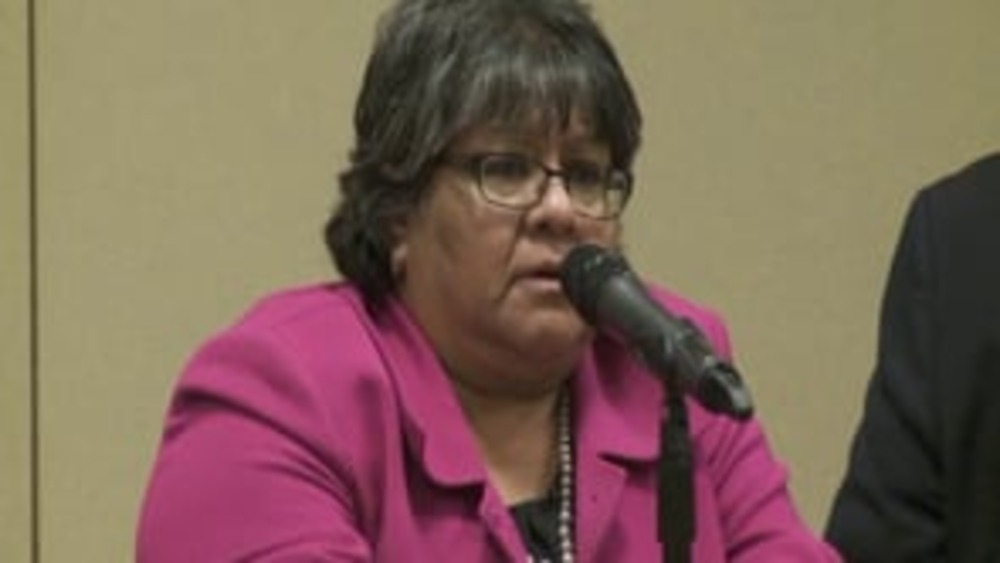
Luann Leonard, Stephen Roe Lewis and Walter Phelps: Bridging the Gap: How Native Culture Forges Native Leaders
Luann Leonard (Hopi), Stephen Roe Lewis (Gila River Indian Community), and Walter Phelps (Navajo) discuss how their personal approaches to leadership have been and continue to be informed by their Native nations' distinct cultures and core values and those keepers of the culture in their…
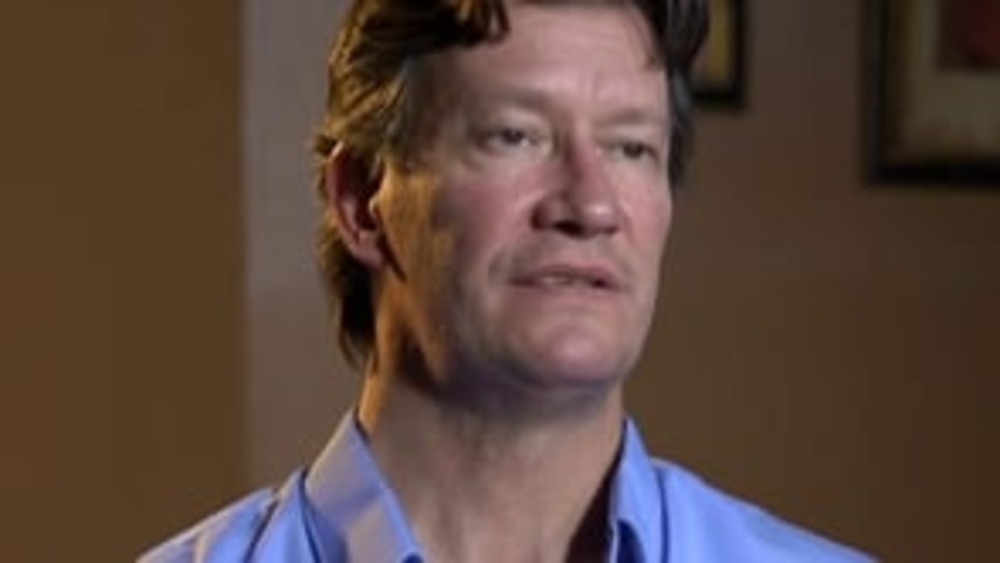
Native Leaders: The Purpose and Challenge of Redefining Citizenship
Several Native leaders share their thoughts on why their nations are deliberating potential changes to their citizenship criteria, and they discuss some of the many challenges that Native nations face in this complex area of governance.
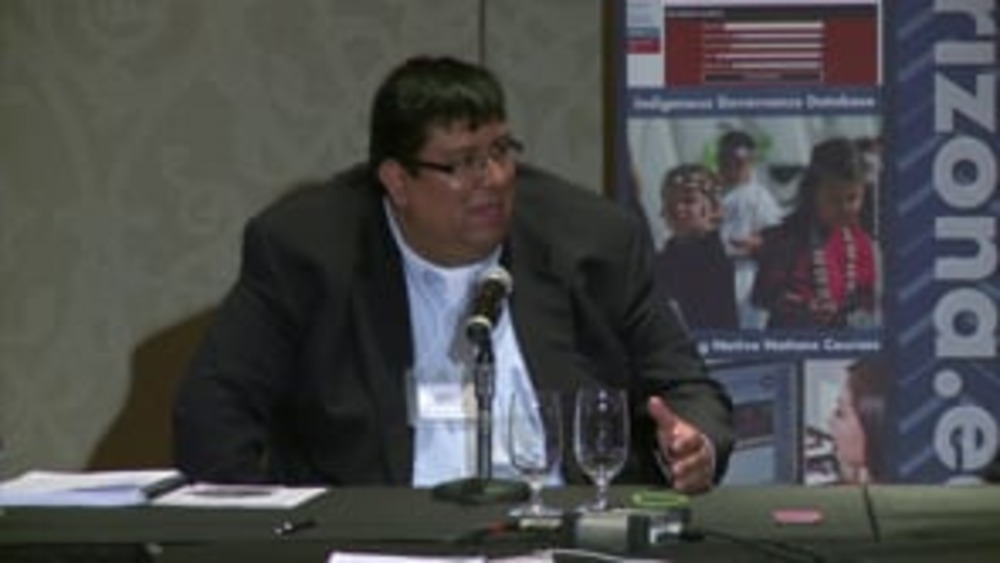
Anthony Hill and Angela Wesley: The Process of Constitutional Reform: The Challenge of Citizen Engagement (Q&A)
Presenters Anthony Hill and Angela Wesley field questions from the audience about the approaches their nations took to constitutional reform.
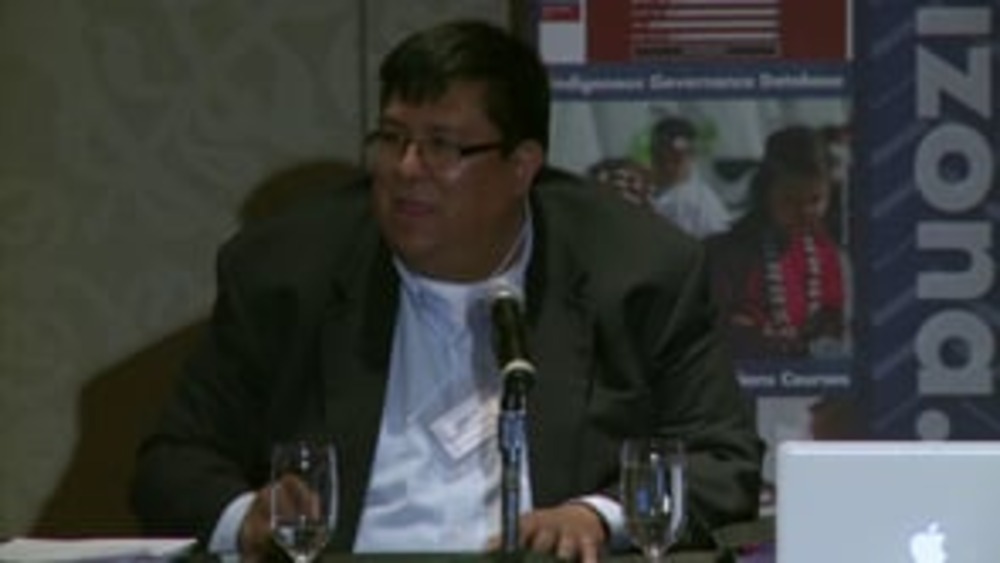
Anthony Hill: Constitutional Reform on the Gila River Indian Community
Gila River Indian Community (GRIC) Chief Judge Anthony Hill, who served as Chair of the Gila River Constitutional Reform Team, discusses the reform process that GRIC followed, the current state of GRIC's reform effort, and what he sees as lessons learned from Gila River's experience.

Honoring Nations: Ana Marie Argilagos: Family Strengthening in Indian Country
Ana Marie Argilagos provides a basic overview of the Annie E. Casey Foundation's mission and discusses a report detailing what family strengthening involves in Native communities.
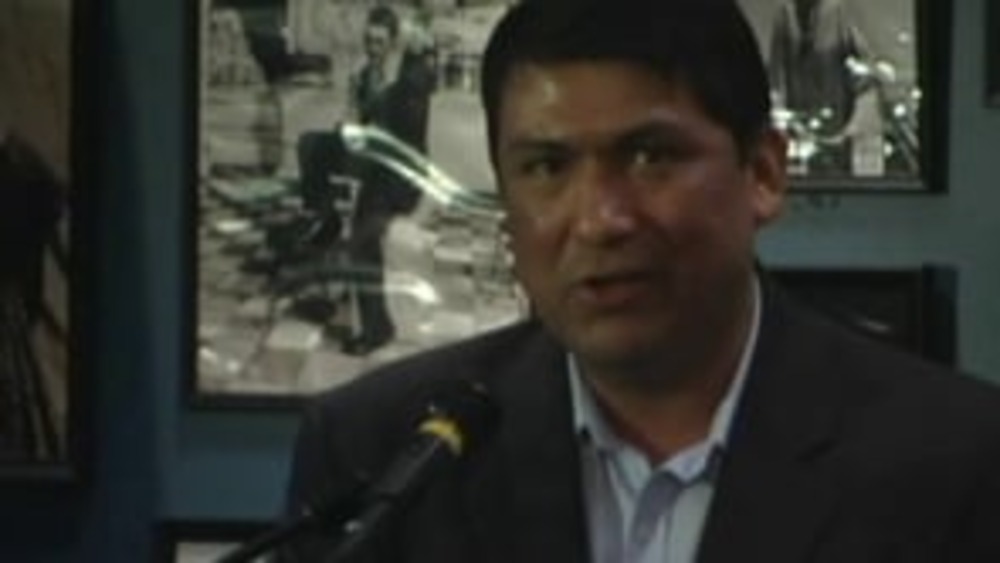
Honoring Nations: Gregory Mendoza: Akimel O'odham/Pee-Posh Youth Council
Gila River Indian Community Governor Gregory Mendoza, formerly the director of the Akimel O'odham/Pee-Posh Youth Council, provides a history of this trend-setting example of innovative governance and discusses the many different ways that it strengthens the Gila River Indian Community.
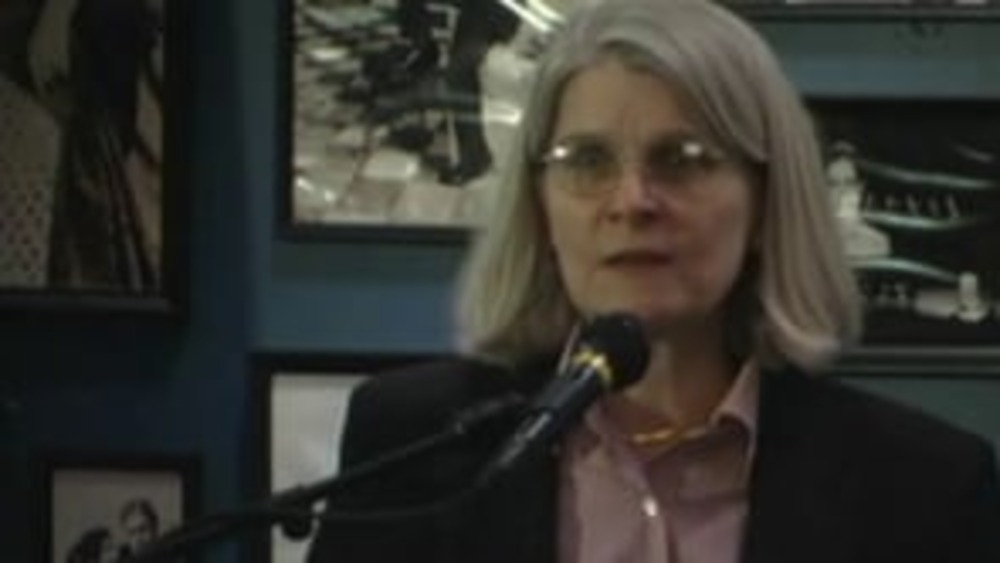
Honoring Nations: Julie Wilson: Child Welfare in Indian Country
Scholar Julie Wilson opens the session "Family Strengthening in Indian Country" with a discussion of recent research conducted by the Harvard Project on American Indian Economic Development that explores the role families play in improving child and community welfare in Indian Country, highlighting…
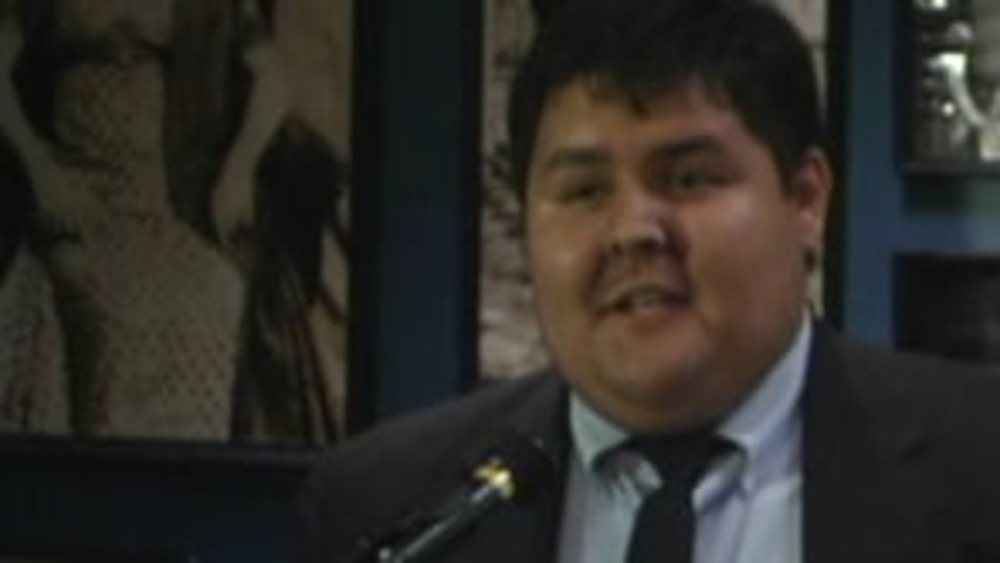
Honoring Nations: Myron Brown: Akimel O'odham/Pee-Posh Youth Council
Former President Myron Brown discusses how the Akimel O'odham/Pee-Posh Youth Council is an example of building a great program in a political setting, and shares how Gila River youth are having their political voice heard through this innovative leadership development mechanism.
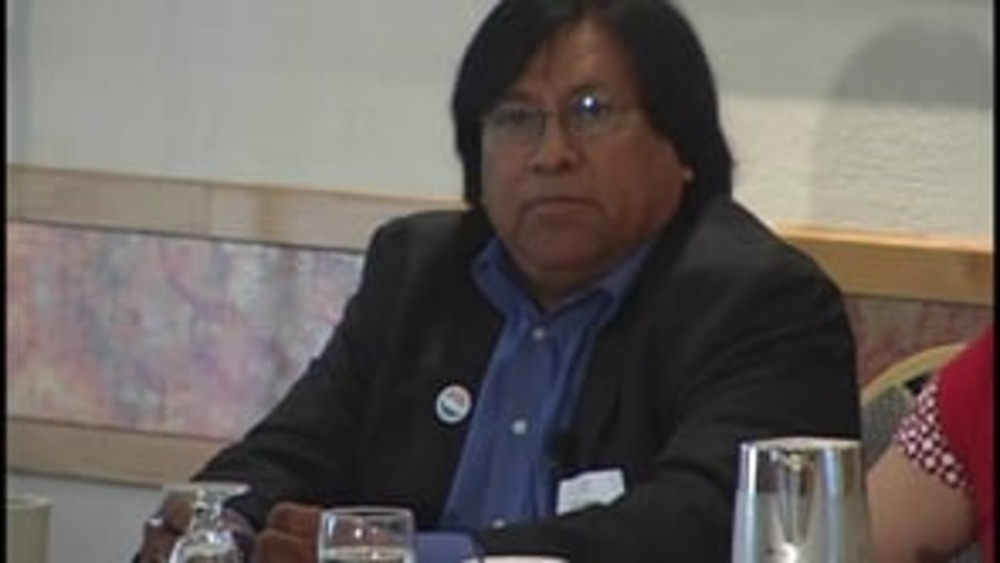
Cecil F. Antone: Nation-Owned Businesses: Gila River Telecommunications, Inc.
Former Gila River Indian Community Lieutenant Governor Cecil F. Antone provides an brief overview of the evolution and growth of Gila River Telecommunications, Inc. (GRTI), an enterprise of the Gila River Indian Community.
Honoring Nations: Devin Redbird: The Gila River Youth Council
Devin Redbird discusses the importance of the Gila River youth council as a source of education and development for the next generation of tribal leaders, while stressing the impact youth councils could have across Native nations.
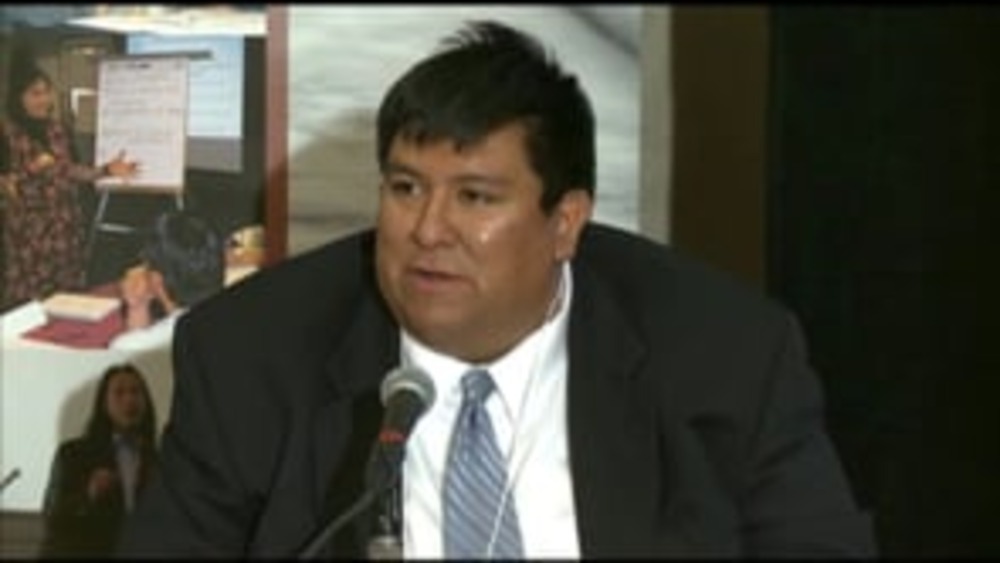
Anthony Hill: The Process of Constitutional Reform: What Gila River Indian Community Did and Why
Formerly the Chairman of the Gila River Tribal Constitution Task Force, Anthony Hill describes the process that the Gila River Indian Community has engaged in as it undertakes reforming its constitution and system of government. Hill also offers some tips and strategies other Native nations should…
